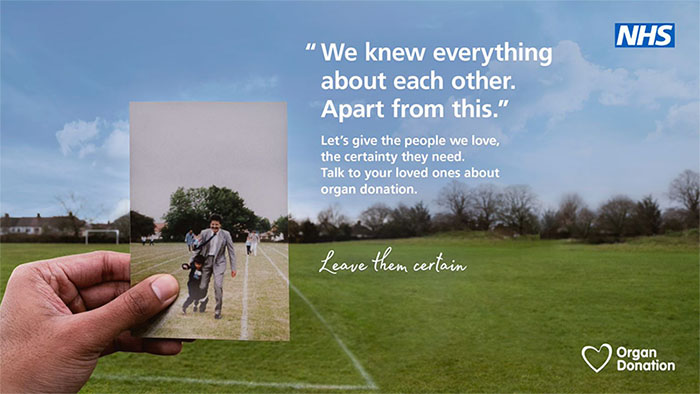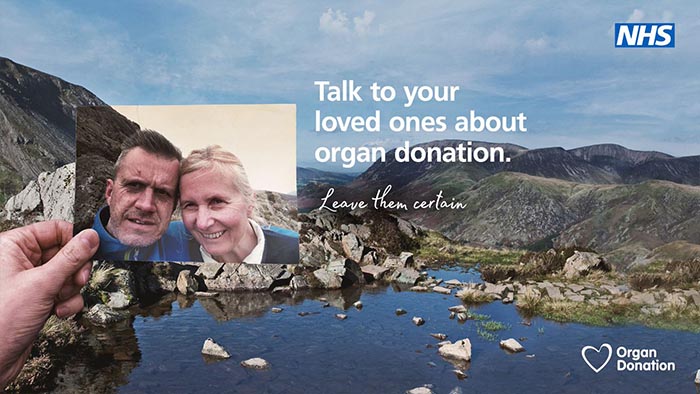
Discuss organ donation with your family - leave them certain
Whether or not you’d like your organs to be donated after you’re gone, it’s so important to share your thoughts.
Talking with your loved ones about what will happen when you die can be one of the hardest conversations we ever have to have.
Whether or not you’d like your organs to be donated after you’re gone though, it’s so important to share your thoughts. In letting your family know your wishes, this can help provide certainty for loved ones at a difficult time. Like when we make the decision to insure our lives – it gives us the peace of mind that we don’t make our death even harder for those we hold dearest.
Research shows that 80% of adults want to donate or would consider donating some or all their organs, but only 41% have shared their decision with their partner or family. This is why Zurich is supporting the NHS ‘Leave Them Certain’ campaign, which encourages people to talk about organ donation with their families when they register their decision on the NHS Organ Donor Register.
“We are very grateful to Zurich for its support of organ donation,” says Anthony Clarkson, director of organ and tissue donation and transplantation at NHS Blood and Transplant. “With organ donation and transplantation both heavily impacted by the pandemic, it is more important than ever for people to have the conversation and let their families know what they want to happen in the event of their death.”
The pause in transplants at the peak of Covid-19 lockdowns has increased the transplant waiting list. More than 5,400 people across the UK are currently waiting for a transplant. As an organ donor, one person can save or enhance the lives of up to nine people through multiple organ and tissue donation.

To help save and improve more lives, the law on organ donation has changed in many parts of the UK. In March 2021, Scotland joined England, Guernsey, Jersey and Wales by introducing an opt-out system for organ donation.
The law is slightly different depending on where you live in the UK. Opt-out systems are described as ‘deemed consent’, ‘presumed consent’ or ‘deemed authorisation’, although the decision remains yours to make. The easiest way to record your decision is to go to the NHS Organ Donor Register and either register to donate or opt out.
If you prefer, you can register to donate only certain organs, and not all. Whilst all major religions and belief systems are open to the principles of organ donation, you can also request that the NHS speaks to your family or faith leader about how organ donation can proceed in line with your faith or beliefs. You can amend or withdraw your registration at any time.
If you live in England, Wales or Northern Ireland you can nominate up to two representatives to make the final decision about organ donation on your behalf.
It’s important to recognise that if you live in an area of the UK that has an opt-out system and you don’t do anything, you’ll be considered a potential donor.
Donors and families of potential donors are treated with the utmost respect. Your family will always be consulted and asked if they’re aware of your organ donation wishes – and even if you have registered, they’ll still be consulted before organ donation goes ahead. They may override your decision if they aren’t certain it’s what you wanted. Fewer than half (47%) of families agree to donation if they’re unaware of their loved one’s decision to be a donor.
“Sadly, many opportunities are lost each year because families don’t know if their loved one wanted to be a donor or not,” says Aisling Fee, senior partnership development officer at NHS Blood and Transplant. “Please don’t wait. Speak to your family about organ donation today.”
So, whatever you decide, make it known to your loved ones. Knowing your decision makes it easier for your family and helps them to understand and honour your wishes.
For details on the law on organ donation where you live, and information that may help you make your decision, visit the NHS organ donation website.
